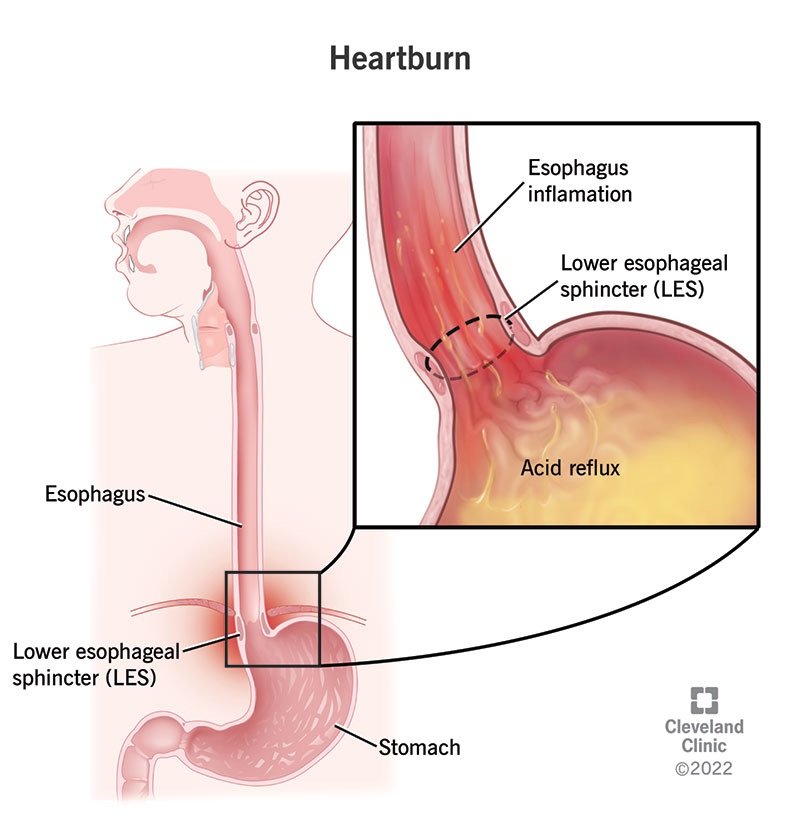Dealing with heartburn can be an uncomfortable experience that disrupts daily life. That familiar burning sensation in your chest, often accompanied by a sour taste in your mouth, is something many people face. Fortunately, you don’t always have to reach for medications to find relief. There are numerous home remedies for heartburn that can provide effective, natural relief and help you regain comfort.

Why Choose Home Remedies?
Home remedies for heartburn offer a natural and holistic approach to alleviating symptoms without the side effects that can come with prescription medications. These remedies are often more affordable, easily accessible, and can be as effective as over-the-counter solutions. Many people find that these natural options not only ease heartburn but also improve their overall digestive health.
In this article, we’ll explore a variety of home remedies for heartburn that you can try, and we’ll also discuss lifestyle changes that can make a significant difference. Plus, you’ll learn how to recognize when it’s time to consult a healthcare professional for more serious symptoms.
If you’re interested in learning about historical inventions related to health and hygiene, you might also enjoy reading about the history of the bidet.

Understanding Heartburn
Heartburn is a common digestive issue characterized by a burning sensation in the chest or throat, often accompanied by a sour taste in the mouth. Understanding the underlying causes and symptoms of heartburn is essential for finding effective solutions and preventing future occurrences.
What Causes Heartburn?
Heartburn occurs when stomach acid flows back up into the esophagus, a condition known as acid reflux. This backflow of acid irritates the lining of the esophagus, causing the uncomfortable burning sensation associated with heartburn. Several factors can trigger or worsen heartburn, including:
- Dietary Choices: Spicy foods, acidic fruits, caffeine, chocolate, and fatty foods are common culprits that can trigger heartburn.
- Lifestyle Habits: Smoking, excessive alcohol consumption, and stress can all contribute to acid reflux.
- Eating Habits: Eating large meals or lying down soon after eating can increase the likelihood of heartburn.
- Medical Conditions: Conditions like obesity, pregnancy, and hiatal hernia can put extra pressure on the stomach, leading to heartburn.

Symptoms of Heartburn
Recognizing the symptoms of heartburn is crucial for addressing the problem effectively. Common symptoms include:
- Burning Sensation: A burning feeling in the chest or throat, often after eating.
- Sour Taste: A sour or bitter taste in the mouth, resulting from acid backing up into the throat.
- Difficulty Swallowing: A feeling of food being stuck in the throat.
- Chronic Cough: Some people experience a persistent cough due to irritation from stomach acid.
Understanding these symptoms helps differentiate heartburn from other gastrointestinal issues, ensuring that the appropriate remedies and lifestyle changes are applied.
If you’re interested in broader aspects of maintaining stomach health, check out this comprehensive guide on unlocking the secrets to stomach health.

The Best Home Remedies for Heartburn
When heartburn strikes, turning to natural remedies can provide quick relief without the need for prescription medications. Here are some of the most effective home remedies for heartburn that you can try:
1. Baking Soda and Water
How It Works:
Baking soda, or sodium bicarbonate, is a natural antacid that can neutralize stomach acid, providing fast relief from heartburn.
How to Use:
- Mix 1/2 teaspoon of baking soda in a glass of water.
- Drink the mixture slowly when experiencing heartburn symptoms.
Note: Use this remedy sparingly, as excessive use can lead to side effects like nausea and swelling.
2. Ginger Tea
How It Works:
Ginger is known for its anti-inflammatory properties and can help soothe the stomach, reducing acid reflux.
How to Use:
- Boil a few slices of fresh ginger in water for 10 minutes to make ginger tea.
- Drink the tea before or after meals to prevent heartburn.
Pro Tip: You can add honey or lemon for extra flavor and benefits.
3. Apple Cider Vinegar
How It Works:
Apple cider vinegar can help balance stomach acidity and improve digestion, making it a popular remedy for heartburn.
How to Use:
- Mix 1 tablespoon of apple cider vinegar with a glass of water.
- Drink before meals or when symptoms arise.
Note: Use this remedy with caution if you have ulcers, as vinegar can exacerbate symptoms.
4. Aloe Vera Juice
How It Works:
Aloe vera juice has soothing properties that can reduce inflammation in the esophagus and help manage acid reflux.
How to Use:
- Drink 1/4 cup of aloe vera juice about 20 minutes before a meal.
- Make sure to use a variety labeled for internal use.
5. Chewing Gum
How It Works:
Chewing gum stimulates saliva production, which helps neutralize stomach acid and wash it back into the stomach.
How to Use:
- Chew a piece of sugar-free gum for 30 minutes after meals to alleviate heartburn symptoms.
Tip: Opt for sugar-free options to avoid any unwanted calories or tooth decay.
6. Almonds
How It Works:
Almonds are alkaline, which helps neutralize stomach acid. Eating a small handful after meals can provide relief from heartburn.
How to Use:
- Consume 5-10 almonds after meals to help prevent acid reflux.
Additional Benefit: Almonds are a healthy snack option, offering protein and healthy fats.
For more insights into maintaining digestive health, explore this article on the best ways to improve stomach health.

Lifestyle Changes for Managing Heartburn
In addition to home remedies, making certain lifestyle changes can significantly reduce the frequency and severity of heartburn. By identifying triggers and adopting healthier habits, you can effectively manage this common digestive issue and enjoy long-term relief.
Dietary Adjustments
1. Avoid Trigger Foods
Certain foods are known to trigger heartburn and should be consumed in moderation or avoided altogether. These include:
- Spicy Foods: Chili peppers, hot sauces, and spicy dishes can irritate the esophagus and increase acid production.
- Acidic Foods: Citrus fruits, tomatoes, and vinegar-based foods can exacerbate heartburn symptoms.
- Fried and Fatty Foods: High-fat foods can slow down digestion, causing stomach acid to back up into the esophagus.
- Caffeine and Alcohol: Both can relax the lower esophageal sphincter, allowing acid to escape from the stomach.
2. Eat Smaller, More Frequent Meals
Eating large meals can put pressure on the stomach, leading to acid reflux. Instead, try eating smaller, more frequent meals throughout the day to reduce this risk. This approach can help improve digestion and prevent heartburn.
3. Avoid Eating Before Bedtime
Eating right before lying down can trigger heartburn as it makes it easier for acid to flow back into the esophagus. To minimize this risk, try to finish eating at least 2-3 hours before going to bed.

Lifestyle Habits
1. Maintain a Healthy Weight
Excess weight can increase pressure on the stomach, forcing acid into the esophagus. Losing weight through a balanced diet and regular exercise can significantly reduce heartburn symptoms and improve overall health.
2. Quit Smoking
Smoking weakens the lower esophageal sphincter, allowing stomach acid to flow back into the esophagus more easily. Quitting smoking can strengthen this muscle and reduce the frequency of heartburn episodes.
3. Reduce Stress
Stress can exacerbate heartburn by increasing acid production and making you more susceptible to triggers. Incorporating relaxation techniques such as yoga, meditation, or deep breathing exercises can help manage stress and prevent acid reflux.
Sleeping Positions
1. Elevate Your Head While Sleeping
Sleeping with your head elevated can prevent stomach acid from rising into the esophagus. Consider using a wedge pillow or raising the head of your bed by 6 to 8 inches to reduce heartburn symptoms at night.
2. Sleep on Your Left Side
Studies have shown that sleeping on your left side can reduce acid reflux, as this position helps keep the stomach below the esophagus. Try sleeping on your left side to see if it alleviates symptoms.
For those interested in creating a comfortable sleep environment that supports digestive health, you might find insights in this article on top bidets for comfort and cleanliness.

When to Seek Medical Attention
While home remedies and lifestyle changes can effectively manage occasional heartburn, there are times when professional medical evaluation may be necessary. Understanding when to consult a healthcare provider is crucial for ensuring that heartburn doesn’t indicate a more serious condition.
Recognizing Serious Symptoms
1. Persistent Heartburn
If you experience heartburn more than twice a week, or if it persists despite using home remedies and over-the-counter medications, it may be a sign of a more chronic condition known as Gastroesophageal Reflux Disease (GERD). GERD is a more severe form of acid reflux that can lead to complications if left untreated.
2. Difficulty Swallowing
Trouble swallowing, or dysphagia, may indicate inflammation or narrowing of the esophagus, which requires medical attention. If swallowing becomes difficult or painful, it’s important to seek advice from a healthcare professional.
3. Unexplained Weight Loss
Significant and unexplained weight loss, along with persistent heartburn, could signal a serious underlying health issue. It’s essential to investigate these symptoms with a healthcare provider.
4. Chest Pain
If you experience chest pain, especially if it’s accompanied by shortness of breath, jaw or arm pain, or lightheadedness, seek immediate medical attention. While heartburn can cause chest pain, these symptoms may also indicate a heart attack.
5. Chronic Cough or Hoarseness
A persistent cough or hoarseness can be linked to acid reflux, as stomach acid irritates the throat and vocal cords. If these symptoms persist, consult a healthcare professional for further evaluation.

Natural Alternatives to Over-the-Counter Medications
While many people turn to medications for relief, there are also natural alternatives that can help manage heartburn and support digestive health:
1. Probiotics
Probiotics promote a healthy balance of gut bacteria, which can improve digestion and reduce symptoms of acid reflux. Foods like yogurt, kefir, and fermented vegetables are excellent sources of probiotics. Alternatively, probiotic supplements are widely available.
2. Herbal Teas
In addition to ginger tea, other herbal teas like chamomile, licorice root, and marshmallow root can soothe the digestive tract and reduce inflammation. These teas may provide relief from heartburn and support overall digestive health.
3. Digestive Enzymes
Taking digestive enzyme supplements can help break down food more effectively, reducing the likelihood of acid reflux. These supplements are available in health food stores and online, providing a natural way to aid digestion.
Importance of Consulting a Healthcare Professional
Consulting with a healthcare professional is essential if you experience persistent or severe symptoms. They can provide a proper diagnosis and recommend appropriate treatments, ensuring your digestive health is well-managed.
For additional resources on maintaining digestive health and improving your overall well-being, consider exploring this comprehensive guide on stomach health.

Heartburn is a common digestive issue that can cause discomfort and disrupt daily life, but the good news is that it can often be managed effectively with natural solutions. By understanding the causes of heartburn and incorporating home remedies for heartburn into your routine, you can find relief without relying on medication.
Summary of Home Remedies
- Baking Soda and Water: Neutralizes stomach acid for quick relief.
- Ginger Tea: Reduces inflammation and soothes the stomach.
- Apple Cider Vinegar: Balances stomach acidity and aids digestion.
- Aloe Vera Juice: Soothes the esophagus and reduces irritation.
- Chewing Gum: Stimulates saliva production to neutralize acid.
- Almonds: Provides alkaline benefits to balance stomach acidity.
Lifestyle Changes for Long-term Relief
Implementing lifestyle changes is essential for managing heartburn effectively. By avoiding trigger foods, maintaining a healthy weight, and adopting stress-reduction techniques, you can significantly reduce the frequency and severity of heartburn episodes.
When to Seek Medical Help
While home remedies are beneficial for mild to moderate heartburn, it’s crucial to recognize when symptoms may indicate a more serious condition. Persistent heartburn, difficulty swallowing, and unexplained weight loss are signals that professional medical evaluation is needed.
Embracing a Natural Approach
Using home remedies and lifestyle changes can offer a holistic approach to managing heartburn, emphasizing overall digestive health. By prioritizing natural solutions, you can enjoy the benefits of fewer side effects, cost savings, and improved well-being.
For those interested in further enhancing their digestive health, explore this guide on unlocking the secrets to stomach health, which offers insights into maintaining a healthy gut and preventing digestive issues.

Final Thoughts About Reflux
Home remedies for heartburn provide a natural and effective way to alleviate discomfort and improve your quality of life. By understanding your triggers and making thoughtful choices about your diet and lifestyle, you can manage heartburn more effectively and enjoy a healthier, more comfortable life.
Remember, if your symptoms persist or worsen, consult a healthcare professional to ensure you receive the appropriate care and treatment. With the right approach, you can find relief and take control of your digestive health.
Next you can check out our article on first hand experience of living with acid reflux (GERD)

As an Amazon Associate we earn from qualifying purchases through some links in our articles.



